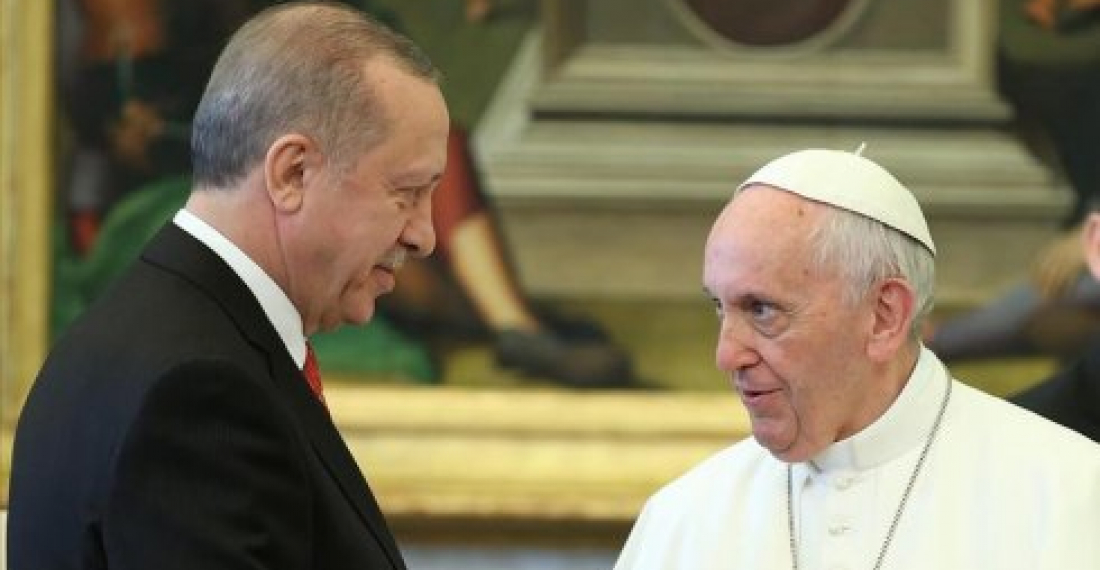President Erdogan is learning the hard way the lesson that it is easy to get into a messy situation such as Syria, it is much more difficult to get out, writes Dennis Sammut
Turkey's decision to enter Syria and try to wipe out the presence of armed Kurdish groups around Afrin has broad domestic political support. Despite the polorised and divided political atmosphere that has ensued following the failed coup attempt in July 2016, the main Turkish political forces have put aside their differences to offer support to the armed forces. Religious groups, including the leaders of the Jewish, Armenian and Orthodox Christian communities also joined in. But this internal unity is fragile. Increased casualties will put the operation under more scrutiny and pressure.
Turkey confidently reports success in the military operation on the ground. This morning (5 February), on the 17th day of the military intervention, the Turkish General Staff reported that since the start of the operation it had "neutralised" a total of 947 People's Protection Units (YPG) and Islamic State of Iraq and the Levant (ISIL) militants. It conveniently lumps them all together because Turkey sees them both as deadly enemies, although they are far from being the same. But this military success has come at a cost. This is difficult terrain, and Turkish forces find themselves having to clear their enemy, village by village, and hill by hill.
On Saturday alone seven Turkish soldiers were killed in the fighting. Domestic opinion may support a short sharp operation, but if the fighting drags on, and casualties increase, people may start having second thoughts
The international context is however more complicated by far. The operation, which targets one of the armed groups that has the patronage of the United States, strained relations between the two allies. In Europe response to the Turkish operation has been at best lukewarm. More relevant however is the fact that the operation, to have any chance of success, required the acquiescence of both Russia and Iran - the other two international players in Syria. Initially this seemed to be forthcoming, but as days pass, and Turkish intentions remain unclear, one can sense a certain unease in both Moscow and Tehran
One of the problems is suspicion of Turkish intentions. Is Turkey still set on regime change in Syria? Will it stay in Afrin and the districts around it once it has drove out the Kurdish militants? What exactly would be the security zone on Syrian-Turkish border that Turkey seeks to establish? President Recip Tayip Erdogan, who today is in Rome meeting the Pope and Italian leaders, has emphatically stated that Turkey does not want to occupy parts of Syria, but not everyone it seems accepts his word.
There is no love lost between Turkey and the Syrian regime in Damascus, and the Assad regime is very wary of Turkish intentions. It has been increasing pressure on its allies Russia and Iran to urge Turkey to withdraw.
And here lies the Turkish dilemma. The sort of war Turkey is fighting in Syria cannot be won from the air. Once Turkey leaves, someone will fill the space, and as things stand these are unlikely to be Turkey's friends. On the other hand the longer Turkey stays in Syria the more it is likely to antagonise friend and foe alike.
President Erdogan is learning the hard way the lesson that other countries have learned a long time ago. It is easy to get into a messy situation such as Syria, it is much more difficult to get out.
source: Dennis Sammut is the director of LINKS (Dialogue, Analysis and Research). His commentary is published every monday on commonspace.eu
photo: Turkish President recip Tayip Erdogan meeting Pope Francis in the vatican on Monday, 5 February 2018. (Picture courtesy of the Anadolu Agency, Ankara.






